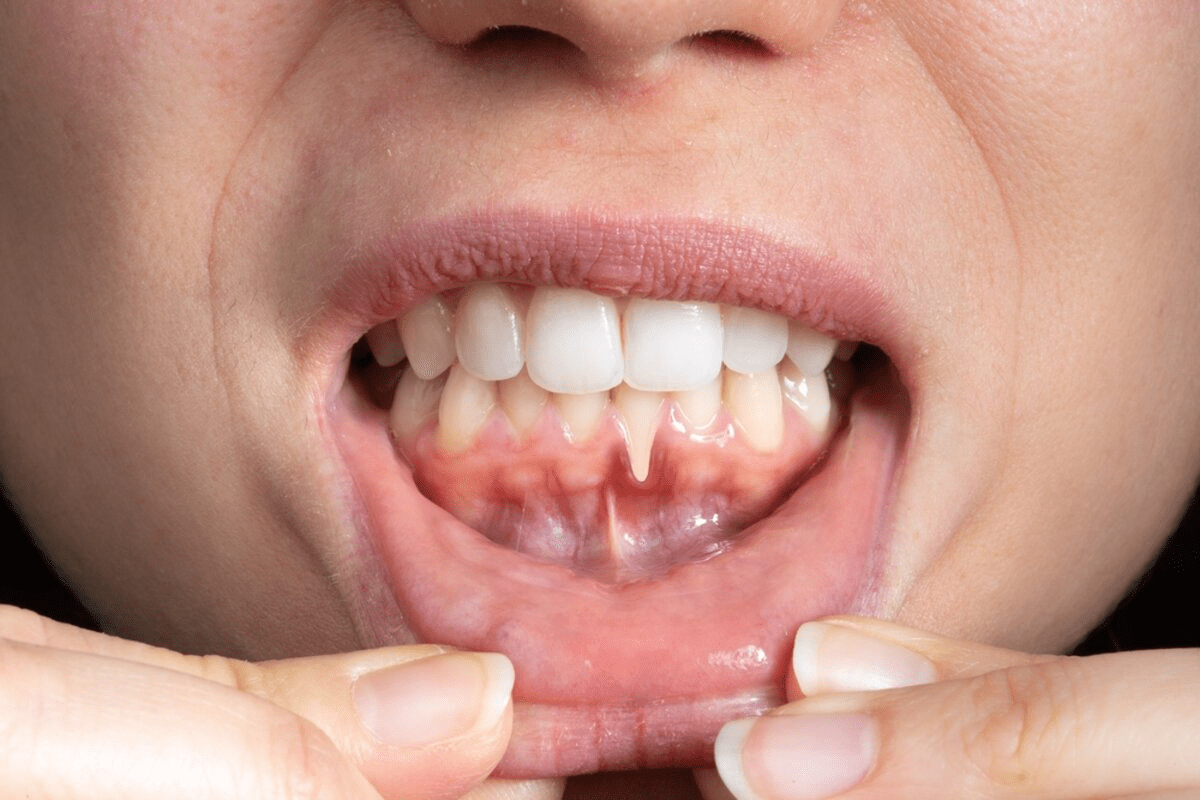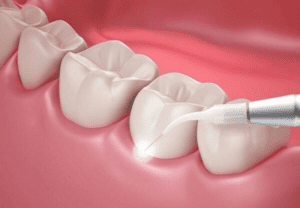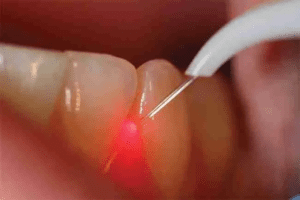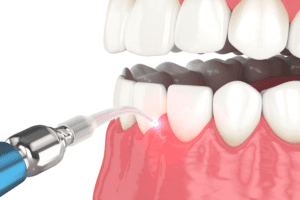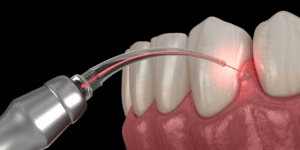Are you curious about how laser treatment for receding gums works? This innovative procedure uses advanced laser technology to precisely target and treat gum tissue, promoting healing and regeneration. By minimizing discomfort and recovery time, laser treatment offers a modern approach to addressing gum recession.
Laser Treatment for Receding Gums: Understanding Gum Recession
Gum recession is a common dental issue where the gum tissue surrounding the teeth pulls back, exposing more of the tooth or its root. This condition can lead to increased sensitivity, a higher risk of cavities, and even tooth loss if left untreated. Various factors contribute to gum recession, including periodontal diseases, aggressive brushing, and genetic predisposition. As the gums recede, they create pockets between the teeth and gum line, which can harbor harmful bacteria. Addressing this issue is crucial for maintaining oral health, and laser treatment for receding gums has emerged as a modern approach to managing this condition.
Laser treatment for receding gums offers a minimally invasive option that targets the affected areas with precision. This method helps in removing bacteria and promoting tissue regeneration without the need for traditional surgical procedures. Understanding the underlying causes of gum recession is essential for determining the most appropriate treatment plan. For those interested in learning more about the specifics of laser procedures, including their duration and recovery time, you can explore further details in our article How Long Does Laser Gum Surgery Take? Key Details.
Basics of Laser Technology
Laser treatment for receding gums utilizes advanced laser technology to address gum recession effectively. This technology involves the use of concentrated light beams to target and remove diseased gum tissue with precision. The laser’s ability to differentiate between healthy and unhealthy tissue allows for a minimally invasive procedure, promoting faster healing and reducing discomfort compared to traditional methods. By focusing on the affected areas, laser treatment can help regenerate healthy gum tissue and improve overall oral health.
The application of laser technology in dental procedures has revolutionized the way gum diseases are treated. It offers a more comfortable experience for patients, as it minimizes bleeding and swelling during and after the procedure. The precision of lasers ensures that only the damaged tissue is removed, preserving as much of the healthy gum as possible. For those interested in exploring this innovative approach, learning more about LANAP in Harrisonburg can provide valuable insights into how laser treatment for receding gums is transforming dental care.
Laser Treatment Procedure Overview
Laser treatment for receding gums is a modern dental procedure that utilizes advanced laser technology to address gum recession effectively. This minimally invasive technique involves the use of a specialized dental laser to remove diseased gum tissue and bacteria from the affected areas, promoting the regeneration of healthy gum tissue. The precision of the laser allows for targeted treatment, reducing discomfort and recovery time compared to traditional surgical methods. By stimulating the natural healing process, laser treatment for receding gums can help restore gum health and improve overall oral hygiene.
Benefits of Laser Therapy
Laser treatment for receding gums offers a range of benefits that make it an appealing option for those seeking dental care. This advanced procedure is minimally invasive, which means it typically results in less discomfort and a quicker recovery time compared to traditional methods. Additionally, laser therapy is known for its precision, allowing for targeted treatment that preserves healthy gum tissue while effectively addressing the affected areas. The use of lasers also reduces the risk of infection, as the technology sterilizes the area during the procedure. For those interested in exploring this innovative approach, Shenandoah Valley Implant Institute provides more information through their Harrisonburg Dentist services.
Comparing Traditional vs. Laser Methods
When considering options for addressing receding gums, it’s important to understand the differences between traditional methods and laser treatment for receding gums. Traditional methods often involve surgical procedures that can be invasive and require longer recovery times. These procedures might include grafting techniques where tissue is taken from another part of the mouth to cover exposed roots. In contrast, laser treatment for receding gums offers a less invasive alternative, utilizing advanced laser technology to target and remove diseased tissue while promoting the regeneration of healthy gum tissue. This method can result in reduced discomfort and quicker healing times, making it an appealing option for many individuals seeking gum restoration.
Recovery Process After Treatment
After undergoing laser treatment for receding gums, patients typically experience a relatively smooth recovery process. The minimally invasive nature of the procedure often results in less discomfort and a quicker healing time compared to traditional surgical methods. Most individuals can resume their normal activities shortly after the treatment, although some may experience mild swelling or sensitivity in the treated area. It’s important to follow any post-procedure guidelines provided by your dental professional to ensure optimal healing. The laser treatment for receding gums aims to promote tissue regeneration, which can contribute to improved gum health over time.
Potential Risks and Considerations
When considering laser treatment for receding gums, it’s important to be aware of potential risks and considerations associated with the procedure. While laser treatment is generally considered safe, some individuals may experience mild discomfort or sensitivity following the procedure. Additionally, there is a possibility of infection if proper post-treatment care is not followed. It’s crucial to discuss any pre-existing conditions or medications with a healthcare professional, as these factors can influence the outcome of the treatment. Understanding these potential risks can help individuals make informed decisions about pursuing laser treatment for receding gums.
Success Rates and Outcomes
Laser treatment for receding gums has gained attention due to its promising success rates and positive outcomes. This minimally invasive procedure is designed to target and remove diseased gum tissue while promoting the regeneration of healthy tissue. Many patients report significant improvements in gum health and a reduction in gum recession following the treatment. Clinical studies have shown that laser treatment for receding gums can effectively reduce pocket depths and enhance the attachment of gums to teeth, contributing to overall oral health. While individual results may vary, the general consensus in the dental community is that laser treatment offers a viable option for managing gum recession with favorable outcomes.
Future of Dental Laser Treatments
The future of dental laser treatments, particularly for conditions like receding gums, is poised for significant advancements. As technology continues to evolve, laser treatment for receding gums is expected to become more precise and efficient, offering patients a less invasive option with potentially quicker recovery times. Researchers are exploring new wavelengths and techniques that could enhance the effectiveness of these treatments, making them a staple in modern dental care. The integration of artificial intelligence and machine learning could further refine the process, allowing for personalized treatment plans that cater to individual patient needs. As these innovations unfold, the role of laser treatment in managing oral health issues is likely to expand, providing promising outcomes for those affected by gum recession.
Conclusion
Discover the potential benefits of laser treatment for receding gums and take the first step towards healthier gums by calling 540-434-8575 or visiting our Google Maps page for more information.

